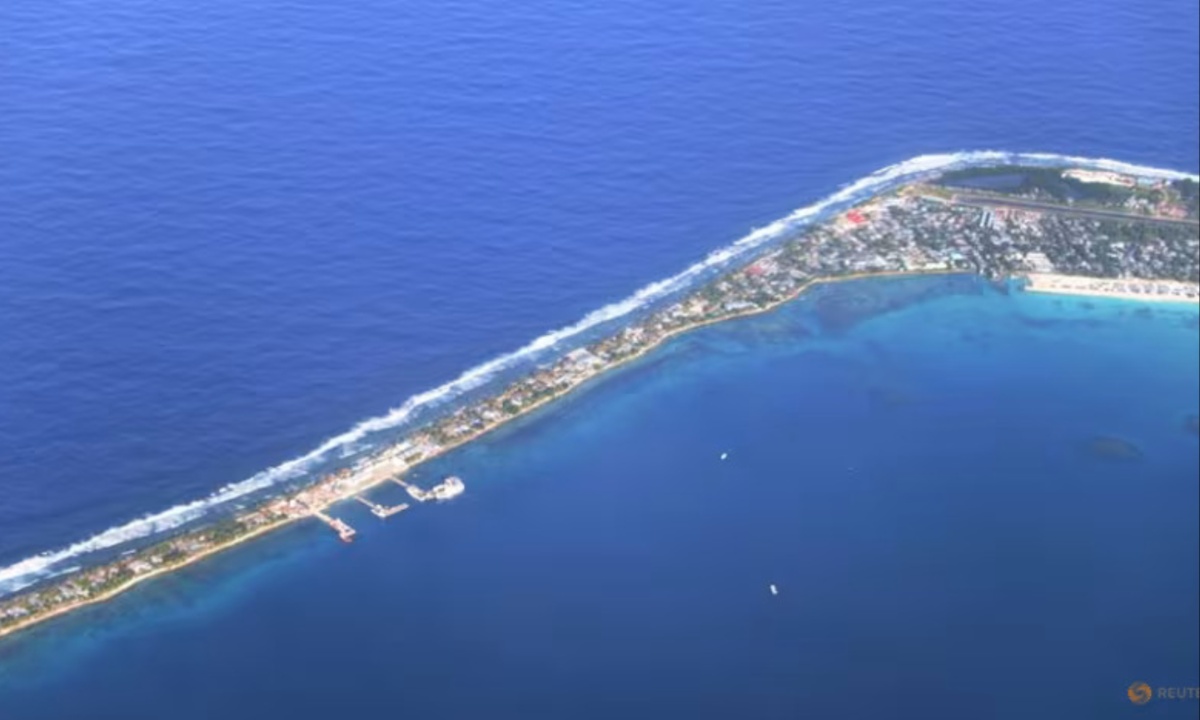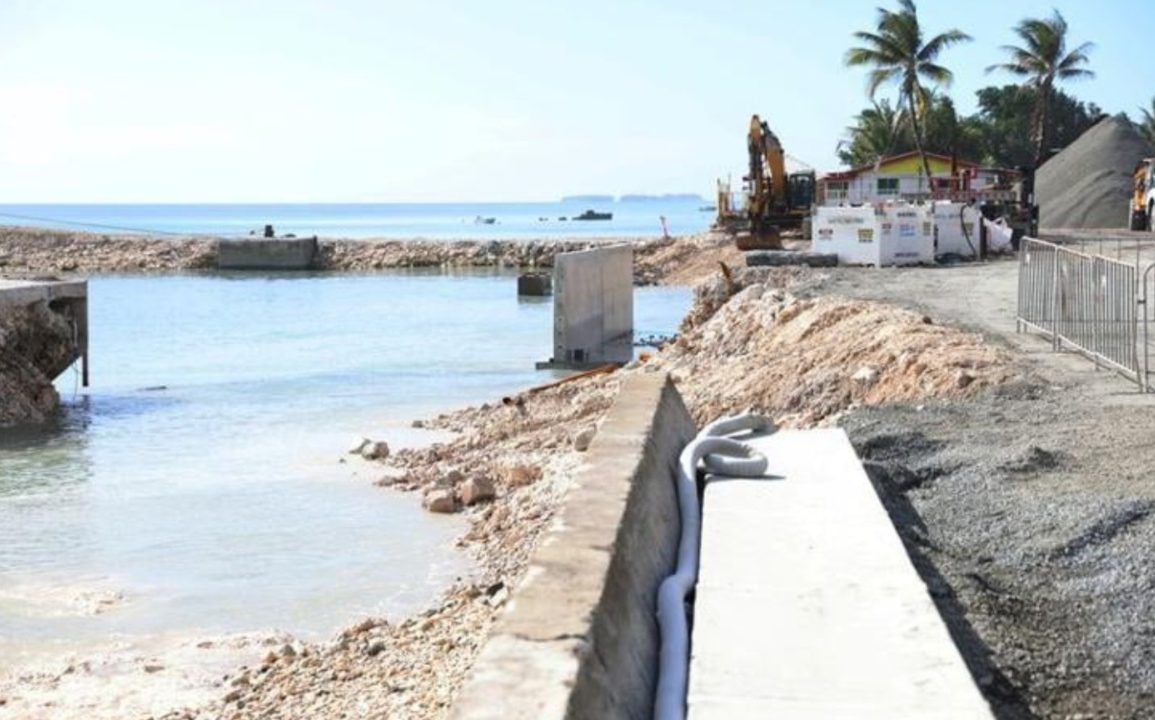Tuvalu, an island nation in the Pacific Ocean, is confronting an urgent crisis as rising sea levels threaten to submerge its nine atolls, home to around 11,000 residents. With an average elevation of only two meters above sea level, Tuvalu has experienced a sea-level rise of 15 centimeters over the last 30 years, significantly outpacing the global average.
For many residents, like Fukanoe Laafai, the looming threat of climate change complicates personal aspirations, such as starting a family, amid fears that their homeland may soon disappear.
The situation is particularly dire for Funafuti, the main atoll where 60% of the population resides. Projections from NASA suggest that by 2050, daily tides could inundate half of Funafuti. Saltwater intrusion has already compromised groundwater supplies, making it difficult to grow crops.
Residents rely on rainwater tanks and central raised gardens for food, highlighting the immediate impacts of climate change on daily life. Efforts are underway to build sea walls and artificial land to protect against worsening conditions, but the long-term viability of these measures is uncertain.
In 2023, Tuvalu secured a landmark climate and security treaty with Australia, allowing 280 Tuvaluans to migrate annually. While this agreement provides a potential lifeline, many in Tuvalu express deep concerns about the loss of their cultural identity should relocation become necessary.
The society is closely knit and steeped in traditions, making the thought of leaving not just a geographic change, but a profound cultural loss. This dilemma weighs heavily on residents who are torn between survival and preserving their heritage.

To maintain its sovereignty in the face of rising waters, Tuvalu is employing a diplomatic strategy to ensure legal recognition of its maritime boundaries and statehood.
Officials are exploring avenues such as international legal challenges or U.N. resolutions that would allow them to retain control over their vast exclusive economic zone, essential for fishing rights and economic survival. Frustration with the global response to climate threats has prompted a shift in tactics, as Tuvalu seeks stronger international support.
Tuvalu’s exclusive economic zone is crucial to its economy, covering 900,000 square kilometers—over twice the size of California. Fishing licenses generate around $30 million annually, representing the nation’s largest revenue source.
Additionally, Tuvalu earns substantial income from its .tv internet domain. Preserving these maritime boundaries is vital, especially as the islands face submersion. However, support from international fishing nations has been limited, raising concerns about potential illegal fishing and economic instability.
The upcoming U.N. General Assembly meeting will be a pivotal moment for Tuvalu as its Prime Minister seeks global recognition of its maritime boundaries and statehood. The U.N. International Law Commission has expressed tentative support for the idea that nations affected by rising seas can maintain their statehood.
However, there is an ongoing debate about how to amend existing conventions to ensure that maritime boundaries remain intact even if land is submerged, highlighting the complexity of legal issues surrounding climate change.
As Tuvalu grapples with these existential threats, residents are already feeling the effects of climate change in their daily lives. Increased occurrences of king tides and storm surges pose immediate dangers to the community.
Concerns about the impact of migration on the elderly population are prevalent, as many younger residents may leave first. This potential displacement threatens to fracture the close-knit community that characterizes Tuvalu, raising fears of a loss of identity and familial bonds.
In light of these challenges, Tuvalu’s officials are advocating for international legal guarantees while preparing for the harsh realities of potential displacement. The prospect of climate change fundamentally reshaping their homeland is daunting, yet Tuvaluans remain deeply connected to their land and traditions.
As they face an uncertain future, the struggle to balance survival with cultural preservation continues to define their collective identity and resilience in the face of overwhelming odds.

